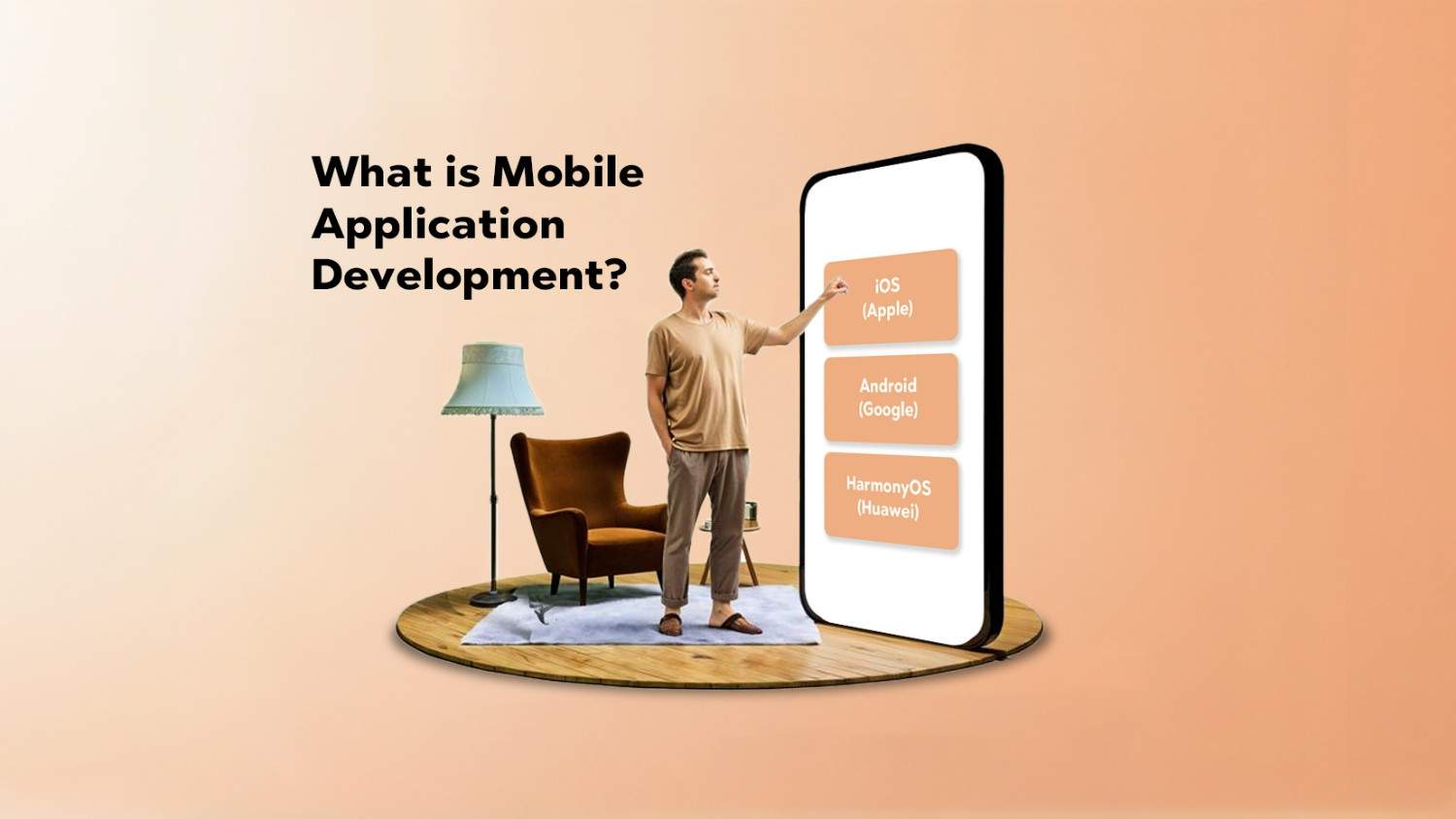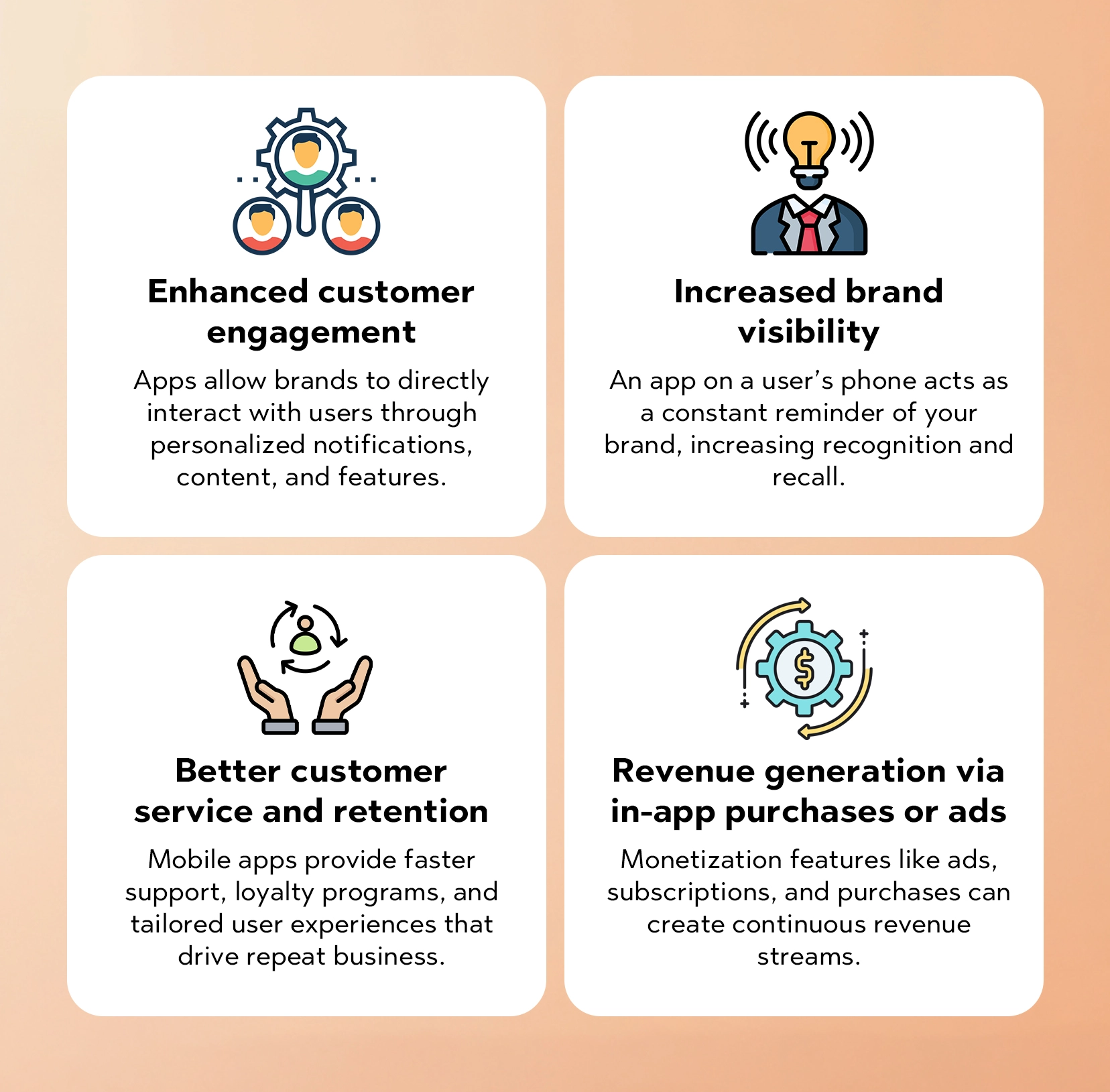Rahul Guleria
SEO Executive

In today’s hyperconnected world, mobile apps have become essential to our daily lives. But what is mobile application development? It’s the process of designing, building, and maintaining software apps that run on mobile devices such as smartphones and tablets. From booking rides to managing finances, mobile applications are revolutionising how people interact with technology. According to Statista, global mobile app downloads reached over 250 billion in 2023, showcasing their massive reach. Businesses now rely on mobile application development services to offer seamless experiences, boost engagement, and stay competitive in the digital economy. It’s more than just code - it’s strategy, design, testing, and evolution packed into a pocket-sized platform.
Mobile application development is the end-to-end process of creating software tailored specifically for mobile devices. It includes writing code, designing interfaces, testing performance, and deploying the app across various platforms.
Mobile apps come in different forms. Each type has its development approach, benefits, and limitations.
To deliver high-quality apps, developers rely on a variety of programming languages, frameworks, and development environments.
Investing in mobile application development services offers both short-term engagement and long-term brand growth.

Apps allow brands to directly interact with users through personalized notifications, content, and features.
An app on a user’s phone acts as a constant reminder of your brand, increasing recognition and recall.
Mobile apps provide faster support, loyalty programs, and tailored user experiences that drive repeat business.
Monetization features like ads, subscriptions, and purchases can create continuous revenue streams.
Even with its many benefits, mobile application development has hurdles that developers and businesses must overcome.
Hundreds of devices with different screen sizes, hardware, and OS versions can complicate testing and optimization.
Strict publishing rules from the Apple App Store or the Google Play Store may delay launches or cause rejections.
Mobile apps need to protect user data through encryption, secure APIs, and compliance with privacy regulations.
Efficient coding and smart background processes are crucial to ensure speed without draining battery life.
Staying ahead in mobile app development means embracing new trends and technologies that reshape user experiences.
From chatbots to personalized recommendations, AI is elevating app intelligence and automation.
Augmented and Virtual Reality are redefining industries like retail, healthcare, and gaming by offering immersive interactions.
Faster data speeds open doors for real-time apps, cloud gaming, and high-definition streaming.
Voice technology is simplifying user navigation and support through virtual assistants and speech-to-text features.
Mobile application development is no longer a luxury but a necessity for modern businesses. From enhancing customer engagement to opening new revenue streams, it transforms how brands interact with their audiences. By understanding what is mobile application development and tapping into expert mobile application development services, businesses can position themselves for long-term success in the digital marketplace.
Ready to build the next game-changing app? Discover our mobile application development services and take your business mobile-first.
It’s the process of creating software apps for mobile devices like smartphones and tablets.
Native, web, hybrid, and progressive web apps (PWAs).
Native apps are built for a specific OS; cross-platform apps use one codebase for multiple platforms.
Android Studio, Xcode, Flutter, React Native, Kotlin, Swift, and more.
Anywhere from 2 to 6 months or more, depending on complexity.
Costs vary widely but can range from $10,000 to $100,000,+ depending on features.
Yes, with cross-platform tools like Flutter or React Native.
Mobile apps are installed and offer deeper integration; web apps run in browsers.
It enhances customer engagement, retention, and creates new revenue opportunities.
AI, AR/VR, 5G, and voice technology are leading the way.